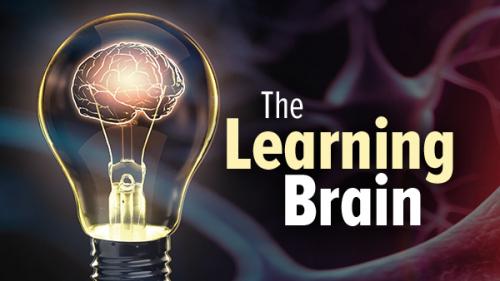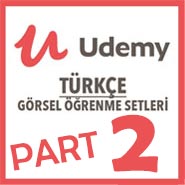TheGreatCoursesPlus - The Learning Brain
An award-winning professor of psychology provides scientifically proven study techniques that will help you become a more adept learner.
1: Learning 101
- Beginning with a clear, working definition of the concept of “learning,” Professor Polk eases you into a course overview with simple examples of some of the topics that will be covered, including how scientists study learning, the neural basis of learning, and effective learning strategies.
2: What Amnesia Teaches Us about Learning
- In the 1950s, a Connecticut man named Henry Molaison became an unfortunate but invaluable source of information about how learning is implemented in the human brain after an experimental brain surgery led to profound amnesia. Studies of how he could (and couldn’t) learn—and what those studies uncover about how the rest of us learn—are detailed in this revealing lecture.
3: Conscious, Explicit Learning
- In this lecture, we discover that we can remember visual information better than verbal information, and that we remember vivid images better than ordinary ones. We also discover that how much you already know about a topic can have a profound influence on how easy it is to learn new information about it. These examples demonstrate conscious “explicit learning.” You may even learn how to memorize your grocery list better.
4: Episodic Memory and Eyewitness Testimony
- Any fan of courtroom drama has seen the powerful influence that the testimony of an eyewitness can have on legal proceedings. But how reliable is our memory for events that we personally witness? In this lecture, we learn that much of what we remember is often a plausible reconstruction of what might have happened, rather than an accurate memory of what actually happened. We also discover just how susceptible eyewitness memories are to distortion, and how being asked seemingly innocuous questions can lead to substantial errors in our memory. Married couples, enter at your own risk.
5: Semantic Memory
- How do you know the distance to the Earth from the Sun? With no first-hand experience, we use “semantic memory”—impersonal, fact-based memory—for world knowledge. Semantic memory also includes our grouping or categorizing of information—but how do our brains do that? Professor Polk makes short, easy work of the subject.
6: The Neural Basis of Explicit Learning
- Take a fantastic voyage into your brain to uncover the physical mechanisms involved in forming explicit memories. The voyage begins in the hippocampus, the seahorse-shaped structure in each temporal lobe, where explicit learning begins. It continues out to the cerebral cortex—the grey matter on the outside of the brain—where memories eventually become consolidated and integrated with other memories.
7: Strategies for Effective Explicit Learning
- Set your highlighters and pens down and stop re-reading your material! These are actually two of the least-effective study techniques. Professor Polk explains why these old techniques don’t really work and offers four different, and more efficient, approaches to studying, which have been scientifically demonstrated to work more effectively.
8: Controversies in Explicit Learning Research
- To wrap up the course’s section on conscious, explicit learning, Professor Polk delivers an enticing “myth-busting” talk about controversial topics in the field. Do different students have different learning styles and, if so, should we tailor our teaching methods to match the learning styles of individual students? Can playing Mozart increase your baby’s intelligence? Do people repress traumatic memories and can such repressed memories later re-emerge? Professor Polk cuts through the hype and lays out the actual scientific findings related to each of these controversies.
9: Unconscious, Implicit Learning
- In this lecture, The Learning Brain switches gears from explicit to implicit learning, that is, learning that is unconscious and hard to verbalize. Discover non-associative learning, like learning to ignore a fan blowing in a room, as well as associative learning, such as conditioning, through which positive and negative reinforcement can shape behaviors over time.
10: The Psychology of Skill Learning
- Compare the first time you tried to tie your shoes to your present-day, shoelace-tying mastery. How did you come such a long way? Practice alone doesn’t begin to cover the intricate process of your brain learning a skill. See which stages are involved in acquiring skill-based knowledge and how you put them all together, with this insightful discussion.
11: Language Acquisition
- Learning a new language is labor-intensive and complicated, so how do toddlers do it so easily? This lecture details how our brains progress from single-word associations to forming full, original sentences, as well as how babies learn to overcome obstacles like learning irregular past-tense verb forms (look/looked versus run/ran, for example).
12: The Neural Basis of Implicit Learning
- Turn again to the neural components of learning to better understand how unconscious, implicit learning occurs in your brain. You actually have more connections between the neurons in your brain than there are stars in our galaxy, and learning involves strengthening and weakening these connections in very specific ways. Explore how your brain does so, how it learns to predict rewards, and the role that dopamine plays in the learning process.
13: Strategies for Effective Skill Learning
- Beginning the second half of this course, we return to more practical applications of learning science. Care to step up your tennis, golf, or typing game? This series of sometimes counterintuitive, yet wildly effective, tips and tricks will surprise you. As always, proven studies and examples abound.
14: Learning Bad Habits: Addiction
- How can learning go wrong? Using the knowledge you’ve been taught so far, you can unmask the dark side of unconscious associations and reward-seeking behavior: addictions to drugs and alcohol. Professor Polk delves into the psychological, chemical, and neural mechanisms underlying addiction to help understand this serious and delicate subject.
15: Introduction to Working Memory
- Begin with an overview of working (or short-term) memory, which is vital to rational thought. This lecture introduces you to the idea of working memory and discusses one of the most important mechanisms involved, the “phonological loop,” which we use to store language sounds like words for brief periods of time.
16: Components of Working Memory
- Several important components of working memory are covered here: the visuospatial sketchpad, which retains images from both recent perception and from long-term memory; the central executive, which decides which cognitive functions to perform and when to perform them; and the episodic buffer, which links information from other working memory components into integrated wholes.
17: The Neural Basis of Working Memory
- Diving back into the brain itself, this lecture explores the neuroscience behind working memory in much the same way earlier lectures examined explicit memory and implicit memory. Are different parts of the brain responsible for storing visual information versus verbal information in working memory? Prepare for an illuminating ride.
18: Training Your Working Memory
- Psychological elements of working memory? Check. Neurological elements? Check. Next, we learn about the controversial topic of improving your working memory. Some scientists believe that training your working memory can improve your overall intelligence and reduce ADHD symptoms; others disagree. Both sides of these widely debated controversies are discussed.
19: How Motivation Affects Learning
- Enjoy this eye-opening discussion about our drive—or lack thereof— to learn, and the enormous impact our motivation can have. Our personal interest in a subject, our belief in our own ability to learn it, and several other factors profoundly impact what we retain about that subject. Improve your learning ability today with this practical lecture.
20: How Stress and Emotion Affect Learning
- Ask almost anyone where they were when they heard about major events like the 9/11 attacks or the Challenger explosion and they remember immediately. Why, psychologically, do those memories remain so vivid? And do short, quick moments of stress versus chronic stress affect our memories differently? How? These answers and more await you.
21: How Sleep Affects Learning
- If you think “getting a good night’s rest” is the only way that sleep affects learning, think again. Our brain is often just as active during sleep as it is while we’re awake, and what happens at a neural level during sleep has a profound impact on what we remember, and what we forget. Furthermore, different stages of sleep influence different kinds of learning and memory, and that’s just the beginning.
22: How Aging Affects Learning
- Here’s another fascinating surprise: Aging does not inevitably lead to learning and memory problems. In fact, there are substantial differences in how aging affects different cognitive functions and in how it affects different people. Fortunately, Professor Polk demonstrates several proven—and enjoyable—methods of maintaining and even improving our brains as we get older.
23: Dyslexia and Other Learning Disabilities
- In this, the fifth and final lecture on factors that influence learning and memory, several common learning disabilities are defined and explored. Learn about dyslexia, the most common learning disability, including its symptoms, the neural mechanisms that underlie it, and how difficulty in recognizing and manipulating phonemes—the set of basic sounds that get combined to form words—plays a large role.
24: Optimizing Your Learning
- Professor Polk wraps things up by discussing five strategies that can make you a better learner. These strategies draw on and integrate some of the key themes that have appeared throughout the rest of this Great Course. And, putting them into practice in your own life can help you to become the best learner you can be.

The.Learning.Brain.part1.GC.rar
The.Learning.Brain.part2.GC.rar
The.Learning.Brain.part3.GC.rar
The.Learning.Brain.part4.GC.rar

































